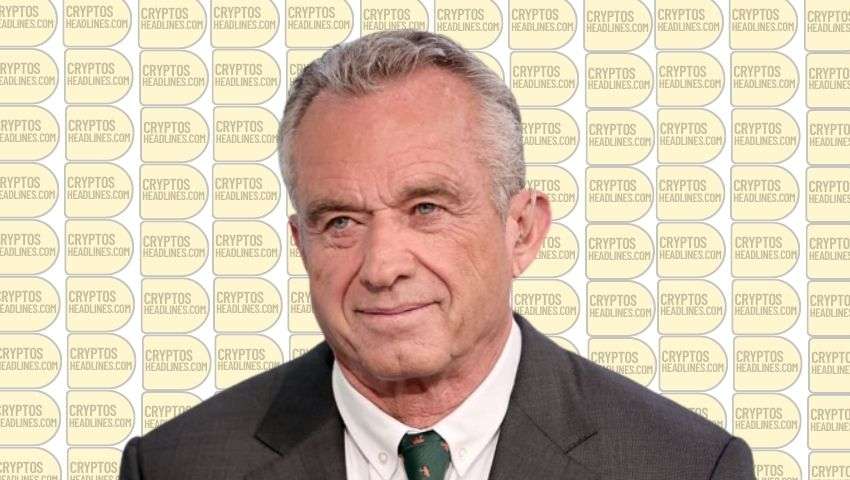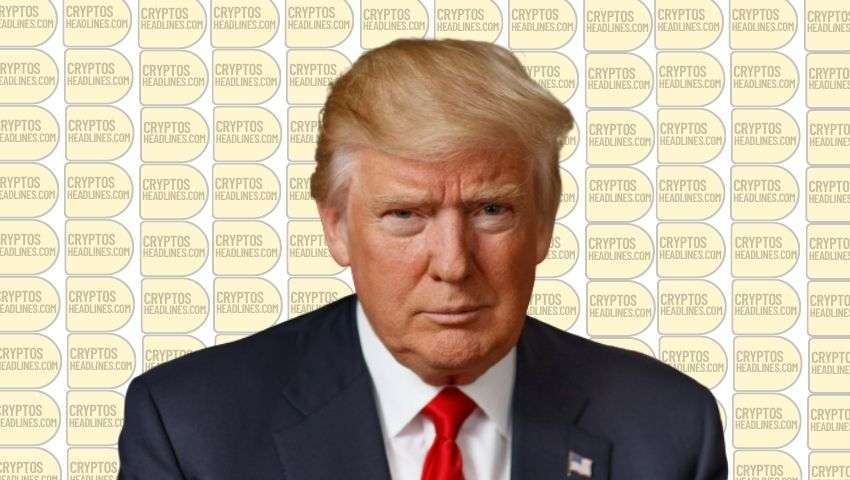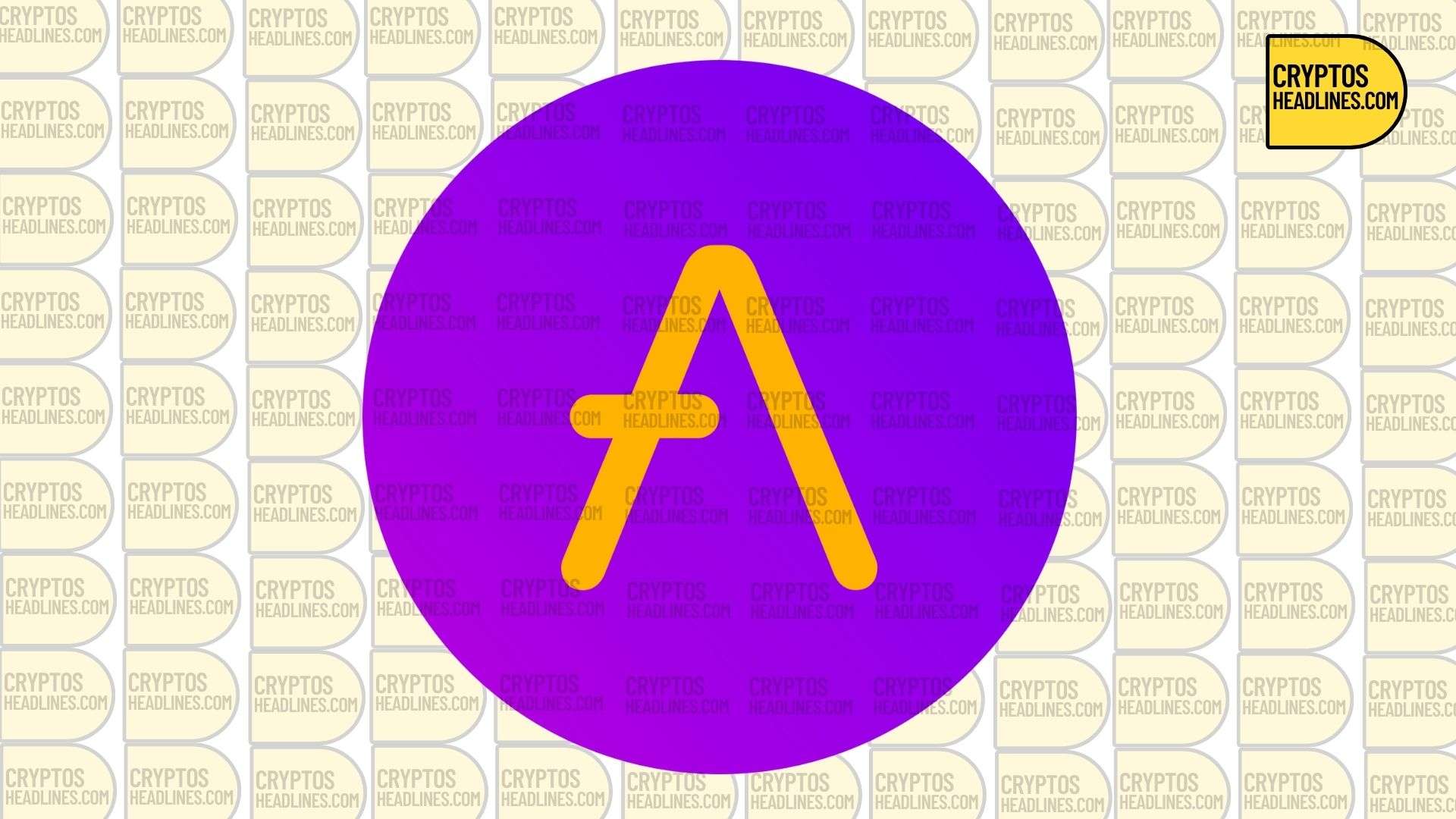The governor of Florida, Ron DeSantis, has expressed his intention to protect individuals’ freedom to engage in Bitcoin transactions. He aims to defend people’s right to “do Bitcoin” as part of his stance on cryptocurrency.
On May 24, Florida Governor Ron DeSantis announced his official entry into the United States presidential race. In a Twitter broadcast with venture capitalist David Sacks, DeSantis vowed to spearhead a “Great American Comeback.” However, his campaign launch drew accusations of plagiarism from former President Donald Trump, who is also a candidate for the 2024 presidential election.
During his hour-long presentation, which covered various topics such as U.S. immigration policy and concerns about critical race theory, Ron DeSantis allocated significant attention to cryptocurrency. He made a commitment to safeguard the freedom to engage in activities like Bitcoin and pledged to challenge the “central planners” in Capitol Hill who might pose obstacles to such endeavors.
Ron DeSantis on #Bitcoin: “I’ll protect the ability to do things like bitcoin. I don’t have an itch to control everything that people may be doing in this space.” pic.twitter.com/j4wRHZACK5
— Jane Adams (@iLoveJaneAdams) May 25, 2023
Ron DeSantis has maintained a consistent stance on cryptocurrency in recent years, and his decision to highlight it once again is noteworthy. Furthermore, the choice to announce his presidential candidacy on Twitter, with crypto-influential figure Elon Musk virtually present, has contributed to his portrayal as “the preferred candidate for crypto enthusiasts in 2024.”
It is evident that DeSantis will continue his efforts to garner widespread support within the crypto community.
A crypto ally
Also Read: Florida Governor Ron DeSantis warns of attempt to eliminate cryptocurrency
In 2021, Governor Ron DeSantis of Florida put forward a proposal to enable businesses to pay state fees using cryptocurrencies during the 2022/23 budget cycle. As part of this initiative, he recommended allocating $200,000 to the Florida Department of Financial Services to facilitate crypto-based fee payments for local companies. Additionally, he suggested allocating $500,000 to explore the application of distributed ledger technology in maintaining motor vehicle records, verifying Medicaid transactions, and identifying potential instances of fraud.
Governor Ron DeSantis has aligned his stance with the prevailing crypto enthusiasm in Florida. The state’s city of Miami hosted a notable Bitcoin event in 2021, touted as the “largest-ever.” Furthermore, Miami’s mayor, Francis Suarez, has embraced cryptocurrency by opting to receive his entire salary in Bitcoin, further highlighting the pro-crypto sentiment in the region.
Miami has gone a step further by introducing its own cryptocurrency called MiamiCoin, which is constructed on the Bitcoin blockchain. Under the MiamiCoin protocol, 30% of all mined coins are directed to a specific digital wallet designated for the city’s use. This initiative aims to foster local economic development and enable the city to leverage the potential benefits of digital currencies.
In 2023, Governor Ron DeSantis became increasingly involved in political discourse regarding cryptocurrencies. In March, he organized a press conference titled “Big Brother’s Digital Dollar,” during which he voiced his opposition to the Federal Reserve’s potential introduction of a central bank digital currency (CBDC). Highlighting concerns over recent inflation rates and the Fed’s decision to raise interest rates, DeSantis focused on issues of freedom and privacy associated with the concept of a “digital dollar.”
According to Governor Ron DeSantis, a central bank digital currency (CBDC) would grant the government an intrusive glimpse into individuals’ transactions and activities. He expressed concerns that such a system would enable the government to exercise greater control over citizens and manipulate their behavior. DeSantis argues that the underlying purpose of a CBDC is surveillance, which raises significant privacy and freedom-related apprehensions.
In his closing statements, Governor Ron DeSantis called upon Florida lawmakers, as well as like-minded legislators from other states, to propose legislation that would prohibit any amendments to the Uniform Commercial Code. The aim of such legislation would be to ensure that neither domestic nor foreign central bank digital currencies (CBDCs) could be incorporated into the code. DeSantis emphasized the importance of taking proactive measures to safeguard against the potential adoption of CBDCs in the United States.
Also Read: US Presidential Candidate Pledges Pro-Crypto Reforms
Taking advantage of recent tensions with China, Governor Ron DeSantis drew attention to the country’s digital yuan project. He asserted that the project is utilized to monitor the behavior of its citizens, enabling surveillance of spending patterns and granting authorities the ability to restrict access to goods and services. DeSantis highlighted this as an example of the potential risks associated with central bank digital currencies, emphasizing the need to safeguard against similar practices in the United States.
Governor Ron DeSantis reiterated his concerns during the Federal Reserve’s statement that it would seek congressional approval before introducing a central bank digital currency (CBDC). DeSantis emphasized that this is not merely a matter of good intentions but a constitutional obligation for any significant policy change to be authorized by Congress. He firmly stated that unaccountable institutions should not have the power to impose a CBDC on the American population, underscoring the importance of maintaining democratic processes and transparency in such decisions.
It is not merely “ideal” that major changes in policy receive specific authorization from Congress; it is constitutionally required.
Unaccountable institutions cannot impose a CBDC on Americans. They will tell us that CBDC won’t be abused but we are wise enough to know better.… https://t.co/OqJ27Lym2L
— Ron DeSantis (@GovRonDeSantis) April 10, 2023
Just a few months after delivering his impassioned speech on the digital dollar, Governor Ron DeSantis took action by signing a bill that imposes limitations on the potential use of central bank digital currencies (CBDCs) in Florida. DeSantis cautioned that the issuance of a U.S. CBDC would result in a significant transfer of power from consumers to a centralized authority. Furthermore, he expressed concerns that a CBDC would pose a threat to existing private cryptocurrencies, emphasizing the potential impact on the broader crypto industry.
Governor Ron DeSantis’ leadership has the potential to foster a favorable environment for cryptocurrencies, creating opportunities for increased innovation and entrepreneurship. However, concerns may arise in other realms of DeSantis’ political advocacy that are unrelated to the cryptocurrency industry. While his stance on crypto may be promising, it is essential to consider the broader implications of his overall political agenda.
A progressive adversary
Often referred to as the leading alternative to Trump in the race, Governor Ron DeSantis possesses the stature of a successful governor of a significant state and maintains a conservative public image. His combination of political achievements and conservative values has garnered attention from pundits and positioned him as a prominent figure in the political landscape.
Throughout his tenure in the U.S. Congress, Ron DeSantis emerged as a staunch opponent of various policies and initiatives. He actively opposed climate tax hikes, the Affordable Care Act, gun control measures, Barack Obama’s immigration policy, the special prosecutor Robert Mueller’s investigation into election interference, and taxes on social security benefits. Notably, DeSantis played a pivotal role as one of the founders of the conservative-libertarian congressional Freedom Caucus in 2015, further solidifying his commitment to conservative principles and limited government intervention.
In his role as governor, Ron DeSantis orchestrated a shift in Florida’s Supreme Court towards originalism, aiming to align the legal system with his resistance against significant social changes. He implemented stricter regulations for Florida universities regarding collaborations with China and signed an “anti-sanctuary city” bill, preventing the establishment of such cities within the state. However, it is his contentious engagements with “critical race theory” and LGBTQ+ awareness in schools that have drawn considerable attention. DeSantis has been at the center of heated debates surrounding these issues, reflecting his determined stance on shaping educational policies in Florida.
During his second-term speech, Governor Ron DeSantis boldly declared, “Florida is where the woke goes to die,” emphasizing his stance against progressive ideologies. In the summer of 2021, the Florida Board of Education supported a prohibition on teaching critical race theory in schools, a measure endorsed by DeSantis. In December of the same year, a politician introduced the Stop Wrongs to Our Kids and Employees Act, also known as the Stop WOKE Act, further reflecting DeSantis’ commitment to combatting what he perceives as harmful influences on education and the workplace.
In 2022, Governor Ron DeSantis signed the legislation into law, aiming to implement certain measures regarding gender and education. However, district judge Mark Walker partially blocked the law, citing concerns over its vagueness and constitutionality. Nonetheless, DeSantis successfully enacted policies that banned transgender girls from participating in female school sports competitions and prohibited discussions on gender identity in classrooms from kindergarten to third grade. While these actions have garnered support from conservative voters, they have also faced criticism and sparked consequences in various arenas.
In response to the media giant Disney’s public criticism of his anti-LGBTQ+ policies, Governor Ron DeSantis eliminated the special tax district for Disney World in Florida. As a consequence, Disney decided to halt its plans for a $1 billion development project in the state, citing the potential creation of around 2,000 jobs. This action showcased the impact of the governor’s policies on economic ventures and raised further debates regarding the balance between political stances and economic growth.
In the 2022 mid-term elections, Republicans faced disappointment as they fell significantly short of expectations. Despite the party’s focus on culture-war issues and allegations of a stolen election, American voters did not rally around the Republican party as anticipated. Additionally, the current polling data shows Governor Ron DeSantis trailing behind former President Trump. These factors could potentially pose challenges for DeSantis, who has championed pro-crypto policies, in his political endeavors.
Polarization shapes the landscape of voting
DeSantis embodies a blend of pro-free market principles, advocating for low taxes and reduced welfare programs, along with a populist inclination towards engaging in cultural battles with progressives. This combination of economic vision and cultural conflict has gained prominence in the past decade.
Within this context, DeSantis’ endorsement of cryptocurrency aligns more with a broader anti-statist and business-friendly ideology, rather than a comprehensive position specifically focused on cryptocurrencies. His stance on cryptocurrency lacks nuanced points, as there is limited evidence of DeSantis discussing the potential of decentralized finance (DeFi), for instance, in detail.
Supporting DeSantis could further deepen the existing divide within the U.S. crypto community, as some individuals may feel concerned about the Biden administration’s strict approach towards cryptocurrencies compared to the relatively favorable crypto rhetoric within the Republican Party. However, it remains debatable whether fostering stronger ties with the Republican Party in the long run would be productive for the crypto industry, considering the partisan nature of such alliances and the potential implications on regulatory frameworks and industry growth.
According to Anthony Georgiades, co-founder of the Pastel Network, a decentralized blockchain for nonfungible tokens, the question of whether it is productive for the crypto industry to foster stronger ties with the Republican Party depends on one’s political stance in an era of intense polarization.
The regulatory approach of the U.S. Securities and Exchange Commission (SEC), characterized by regulation-by-enforcement under the leadership of a Democratic-appointed head, has caused significant unease among market stakeholders. The enforcement-focused approach has led to concerns about an “existential risk” for the industry.
Industry members may be willing to compromise on their preferred candidate to some extent due to their candidate’s policy stance on crypto. This applies not only to the crypto industry but also to numerous other industries.
According to Nihar Neelakanti, CEO and co-founder of Ecosapiens, a carbon-backed digital collectibles platform, the current political polarization in the U.S. extends to the crypto industry. As a neutral industry that attracts a diverse range of supporters, from liberals to libertarians, the crypto industry is seeking support from any available source. While DeSantis is not the sole candidate capable of gathering crypto voters, he is one among several potential options.
At least three candidates, namely Robert F. Kennedy Jr., Ron DeSantis, and Vivek Ramaswamy, have shown strong support for the digital asset economy. Kennedy Jr. resonates with liberals, while DeSantis enjoys popularity among conservatives. This growing bipartisan support for digital assets is encouraging for the industry.
At present, it appears that President Biden is not the favored candidate among crypto enthusiasts. When considering candidates in the crypto community, two crucial factors come into play, as highlighted by Georgieades: firstly, their stance on cryptocurrency, and secondly, their approach to other significant challenges confronting the nation.
Also Read: Poll: 84% of Voters Demand Presidential Candidates’ Support for Bitcoin Rights
Also Read: US Presidential Candidate Vivek Ramaswamy to Accept Bitcoin Donations for Campaign
Important: This article is intended solely for informational purposes. It should not be considered or relied upon as legal, tax, investment, financial, or any other form of advice.
Follow Cryptos Headlines on Google News
Join Cryptos Headlines Community













